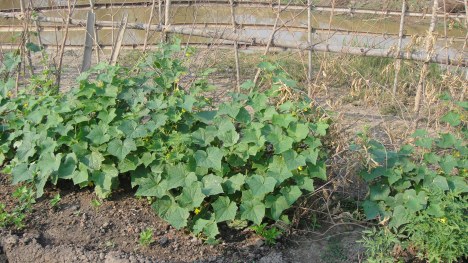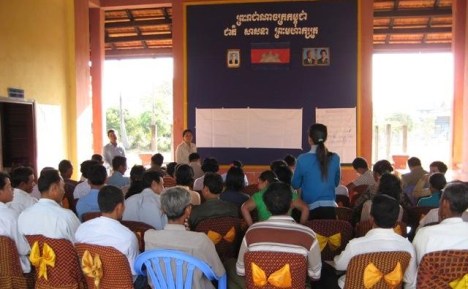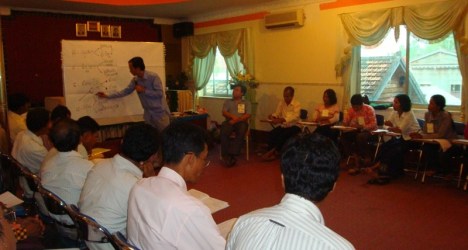There are big demands of vegetables in the dry season, from the experiences of lowland area, I think that it is good if the indigenous farmers form themselves into vegetable farmer producer groups so that they can join effort to produce more vegetables for local market supplies. They can supply their vegetables to markets at the district level as well as the provincial level. Mundulkiri is located in the upland area of Cambodia. Even the soil fertility is good but the vegetables are imported from Vietnam and from the lowland area of Cambodia. Some vegetable sellers in the province import the vegetable products from Phnom Penh to sell in Mundulkiri province.
To me, I think that the farmers can join to improve this situation if they have willingness to grow vegetables:
1. The technique of vegetable growing in dry season should be trained to the indigenous farmers. It is really good if the trainers could show the real practice directly to them. The indigenous people get more understanding through the real practice rather mentioning theories in the classroom. If they are trained on vegetable growing, they will be able to produce vegetable at least for family consumption. Some other potential families will be able to produce vegetables for market supplies so that they actually be able to generate more incomes to improve their family’s livelihood, which previously mainly rely on Non-Timber Forest Products (NTFPs),
2. The farmers should dig family pond or community pond to be used for vegetable growing and animal raising especially in the dry season. If they have ponds, they have hope to better their living condition in the dry season. They can raise fishes, they can grow vegetables, they can raise other animals, etc.

3. The farmers should use as much as possible the existing potentials of their communities, there are some natural water bodies in their communities. Therefore, it is good if they grow vegetables along the stream. They will produce good vegetables for family consumption and market supplies. Some farmers who are cooperating with CEDAC have already experienced of doing such good things and they could receive a good result from their effort.
4. Now, indigenous farmers in Koh Ngiek district do not use chemical fertilizer or chemical pesticide for farming activities. Therefore, it is good to promote ecological agriculture in the district. However, we worry about new comers who not indigenous people apply chemicals to their farm and it is followed by the indigenous farmers. I think that it is really good if development agencies such as NGOs, government line departments raise awareness to those farmers about pros and cons of chemical agricultural inputs and encourage them to use natural manure, organic matter, etc.

